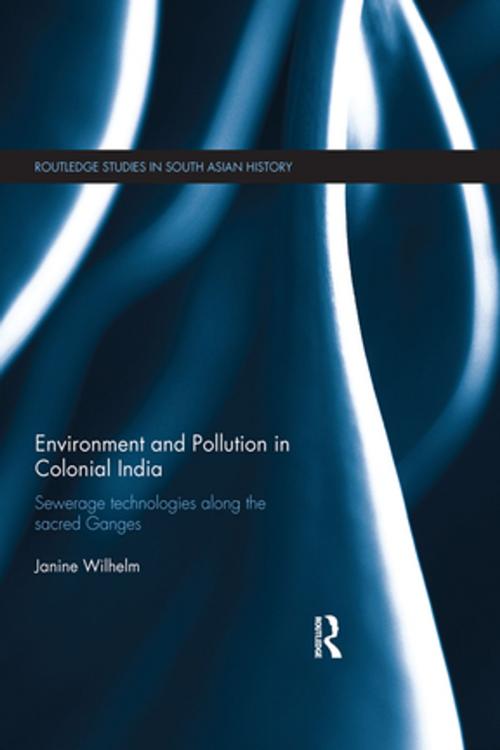Environment and Pollution in Colonial India
Sewerage Technologies along the Sacred Ganges
Nonfiction, History, Asian, India, Social & Cultural Studies, Social Science, Cultural Studies, Ethnic Studies| Author: | Janine Wilhelm | ISBN: | 9781317238850 |
| Publisher: | Taylor and Francis | Publication: | April 28, 2016 |
| Imprint: | Routledge | Language: | English |
| Author: | Janine Wilhelm |
| ISBN: | 9781317238850 |
| Publisher: | Taylor and Francis |
| Publication: | April 28, 2016 |
| Imprint: | Routledge |
| Language: | English |
India is facing a river pollution crisis today. The origins of this crisis are commonly traced back to post-Independence economic development and urbanisation. This book, in contrast, shows that some important early roots of India’s river pollution problem, and in particular the pollution of the Ganges, lie with British colonial policies on wastewater disposal during the late 19th and early 20th centuries.
Analysing the two cornerstones of colonial river pollution history during the late 19th and early 20th centuries – the introduction of sewerage systems and the introduction of biological sewage treatment technologies in cities along the Ganges – the author examines different controversies around the proposed and actual discharge of untreated/treated sewage into the Ganges, which involved officials on different administrative levels as well as the Indian public. The analysis shows that the colonial state essentially ignored the problematic aspects of sewage disposal into rivers, which were clearly evident from European experience. Guided by colonial ideology and fiscal policy, colonial officials supported the introduction of the cheapest available sewerage technologies, which were technologies causing extensive pollution. Thus, policies on sewage disposal into the Ganges and other Indian rivers took on a definite shape around the turn of the 20th century, and acquired certain enduring features that were to exert great negative influence on the future development of river pollution in India.
A well-researched study on colonial river pollution history, this book presents an innovative contribution to South Asian environmental history. It is of interest to scholars working on colonial, South Asian and environmental history, and the colonial history of public health, science and technology.
India is facing a river pollution crisis today. The origins of this crisis are commonly traced back to post-Independence economic development and urbanisation. This book, in contrast, shows that some important early roots of India’s river pollution problem, and in particular the pollution of the Ganges, lie with British colonial policies on wastewater disposal during the late 19th and early 20th centuries.
Analysing the two cornerstones of colonial river pollution history during the late 19th and early 20th centuries – the introduction of sewerage systems and the introduction of biological sewage treatment technologies in cities along the Ganges – the author examines different controversies around the proposed and actual discharge of untreated/treated sewage into the Ganges, which involved officials on different administrative levels as well as the Indian public. The analysis shows that the colonial state essentially ignored the problematic aspects of sewage disposal into rivers, which were clearly evident from European experience. Guided by colonial ideology and fiscal policy, colonial officials supported the introduction of the cheapest available sewerage technologies, which were technologies causing extensive pollution. Thus, policies on sewage disposal into the Ganges and other Indian rivers took on a definite shape around the turn of the 20th century, and acquired certain enduring features that were to exert great negative influence on the future development of river pollution in India.
A well-researched study on colonial river pollution history, this book presents an innovative contribution to South Asian environmental history. It is of interest to scholars working on colonial, South Asian and environmental history, and the colonial history of public health, science and technology.















